
Đorđe Balašević was a Serbian singer and songwriter, writer, poet and director. He began his career in the late 1970s as a member of the band Rani Mraz, transitioning after two albums to a solo career. He first gained mainstream prominence for writing Rani Mraz's hit "Računajte na nas", which was often described as an anthem of a generation. Noted for his vivid lyricism and poetry, Balašević was also known for weaving political commentary into his songs and live performance.

Borisav "Bora" Đorđević, also known as Bora Čorba, was a Serbian singer, songwriter, and poet. He was best known as the frontman of the rock band Riblja Čorba. Renowned for his brand of poetic lyrics and husky baritone voice, Đorđević is widely considered one of the top and most influential authors of the Serbian rock scene.

Dejan Cukić is a Serbian rock musician, journalist, writer and translator.

Smak was a Serbian and Yugoslav band from Kragujevac. The group reached the peak of popularity in the 1970s when it was one of the most notable acts of the former Yugoslav rock scene. The band's leader, guitarist Radomir Mihailović, nicknamed Točak, is considered one of the most influential guitarists on the former Yugoslav rock scene.

Riblja Čorba is a Serbian and former Yugoslav rock band formed in Belgrade in 1978. The band has been one of the most popular and most influential acts of the Yugoslav and Serbian rock scene.
Generacija 5 is a Serbian and Yugoslav rock band formed in Belgrade in 1977.
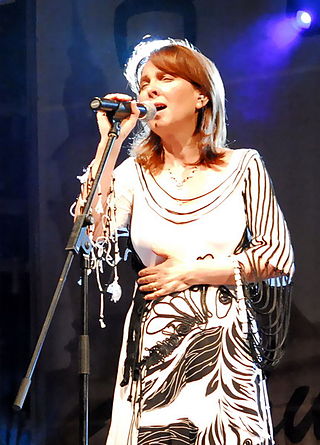
Biljana "Bilja" Krstić is a Serbian and Yugoslav singer and songwriter.
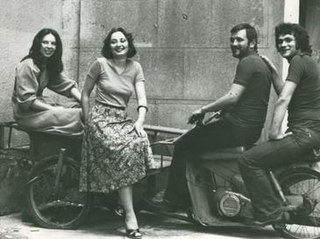
Rani Mraz were a Yugoslav rock band from Novi Sad, formed in 1977 by former Žetva member Đorđe Balašević. During the initial period, the band went through several lineup changes, until Balašević and female singer Biljana Krstić remained the only official members of the band. The two released two studio albums under the name Rani Mraz, before officially dissolving in 1981.

Mojoj mami umesto maturske slike u izlogu is the first studio album released by former Yugoslav rock band Rani Mraz.

Pub is the first solo album released by Serbian and former Yugoslav singer-songwriter Đorđe Balašević. The album was produced by Josip Boček, who played guitar as well.

Korni Grupa was a Yugoslav rock band formed in Belgrade in 1968. Launched and led by, as well as named after, the keyboardist Kornelije Kovač, the band was one of the first Yugoslav rock acts to achieve major mainstream popularity in the country, and often considered the first Yugoslav supergroup. Over the period since their dissolution, Korni Grupa went on to be considered among the most prominent and influential bands in the history of rock music in Yugoslavia. The band additionally used the Kornelyans name during a short-lived commercial foray outside of Yugoslavia in an attempt at breaking into the international market with an English-language album.
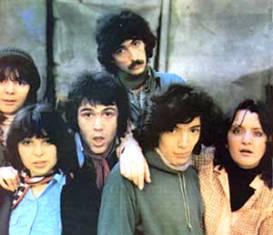
Suncokret was a Yugoslav acoustic rock band from Belgrade.
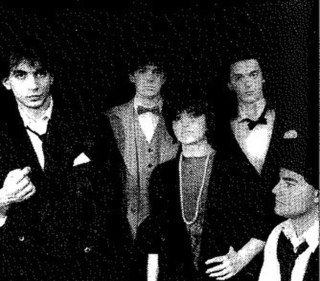
Oktobar 1864 was a Serbian and former Yugoslav rock band.

Laki Pingvini were a Serbian and Yugoslav rock band formed in Belgrade in 1979.

Naposletku... is the ninth studio album released by Serbian and former Yugoslav singer-songwriter Đorđe Balašević. Featuring only acoustic instruments, Naposletku... is Balašević's first completely folk rock-oriented album. Similar sound would be featured on Balašević's 2004 album Rani mraz.
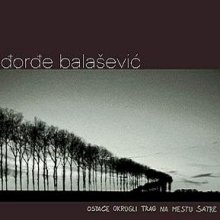
Ostaće okrugli trag na mestu šatre is a double compilation album released by Serbian and former Yugoslav singer-songwriter Đorđe Balašević.

Rani mraz is the twelfth and final studio album released by Serbian and former Yugoslav singer-songwriter Đorđe Balašević. The title refers to Balašević's former band Rani Mraz.
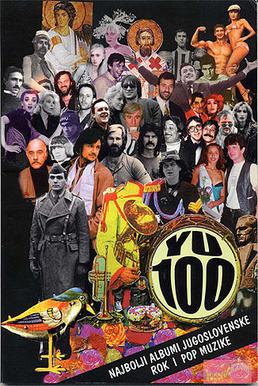
YU 100: najbolji albumi jugoslovenske rok i pop muzike is a book by Duško Antonić and Danilo Štrbac, published in 1998. It features a list of top 100 former Yugoslav popular music albums, formed according to the poll of 70 Serbian music critics, journalists, artists and others.

Elipse were a Yugoslav rock band formed in Belgrade in 1962. The band were one of the pioneers of the Yugoslav rock scene.

Slobodan "Boba" Stefanović was a Serbian and Yugoslav singer and songwriter. He was one of the leading stars of the Yugoslav pop scene in the 1970s.




















